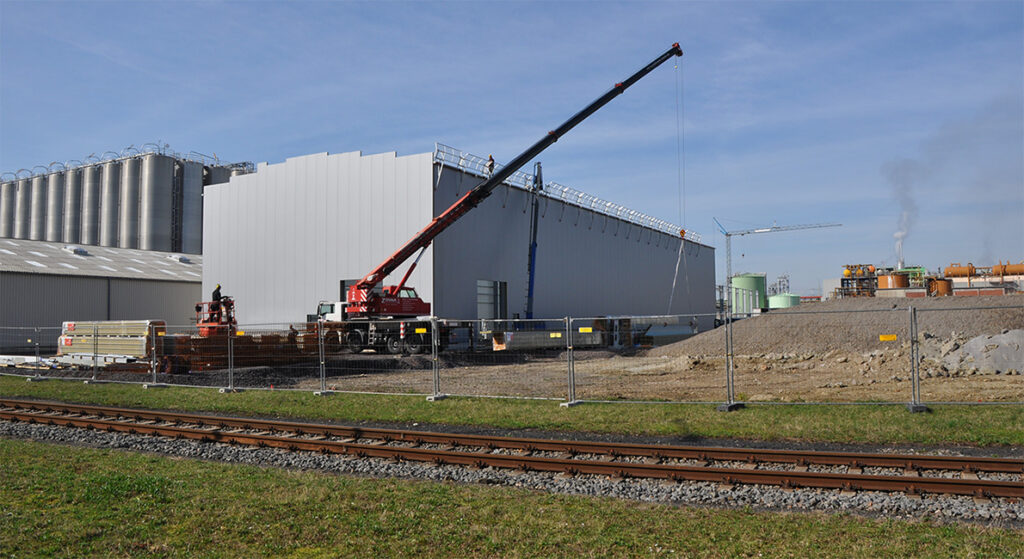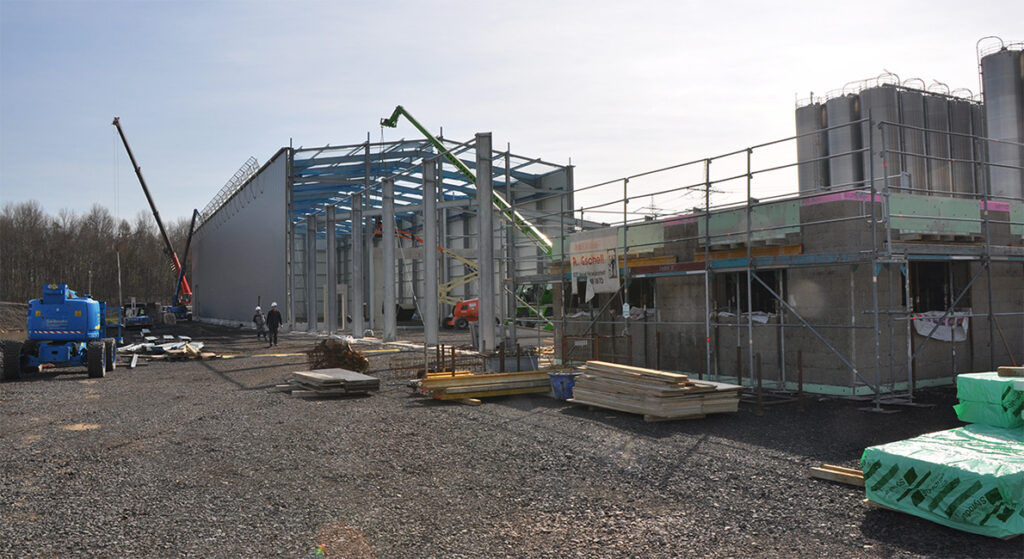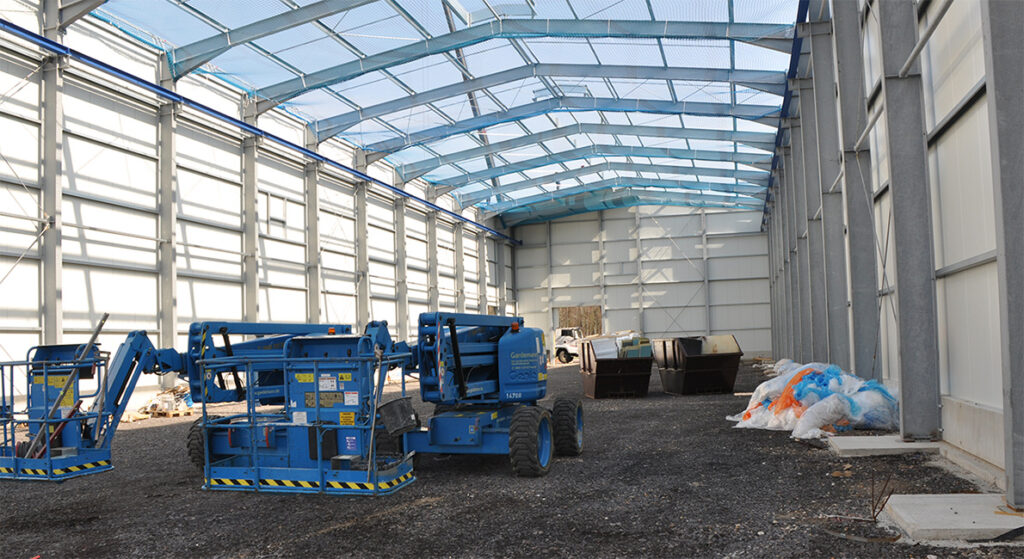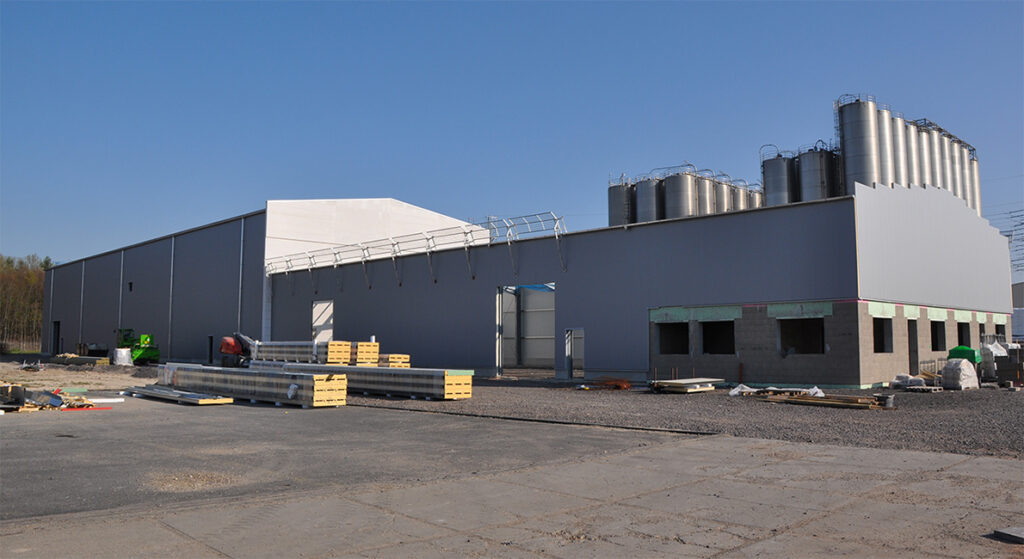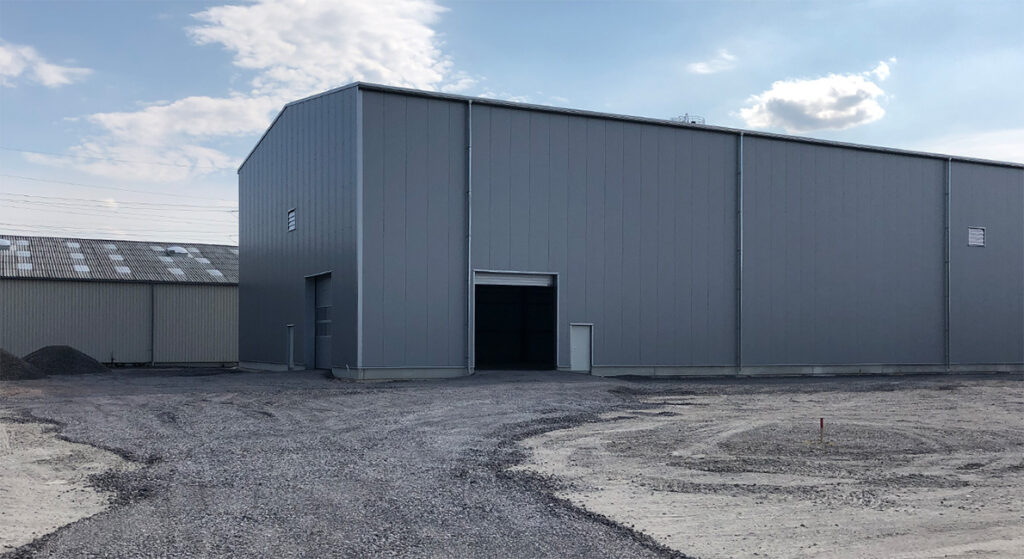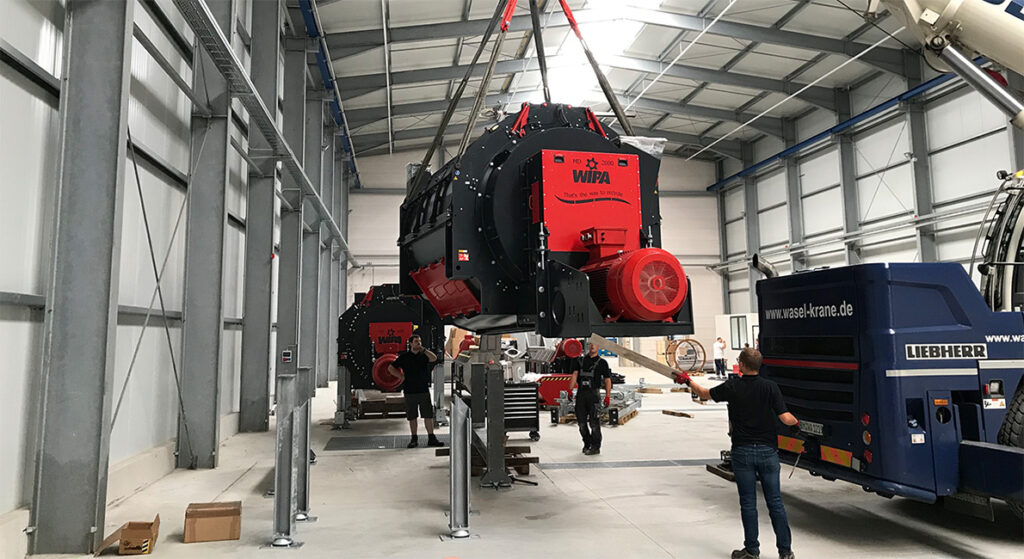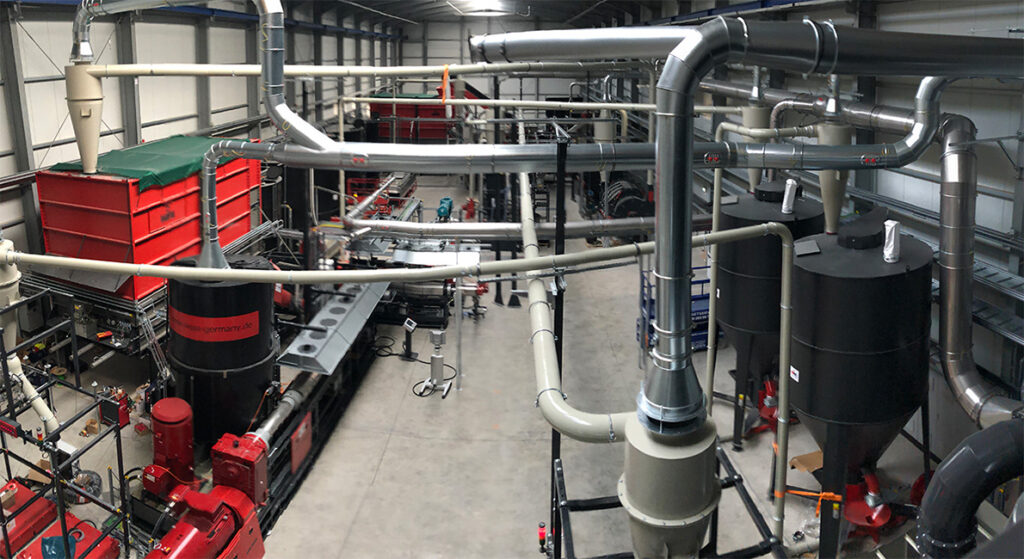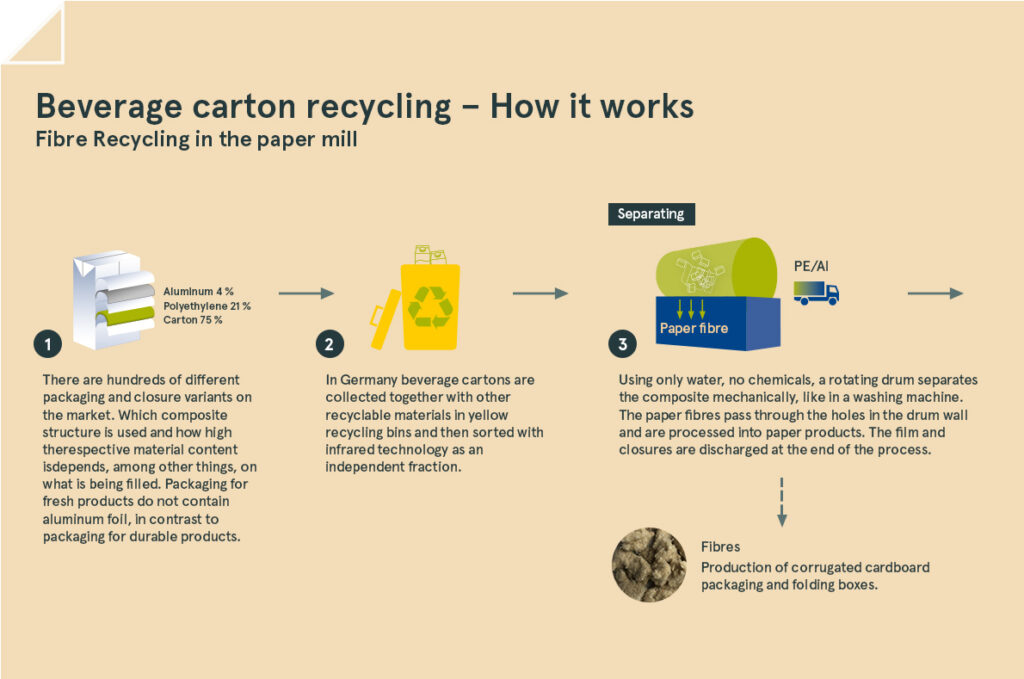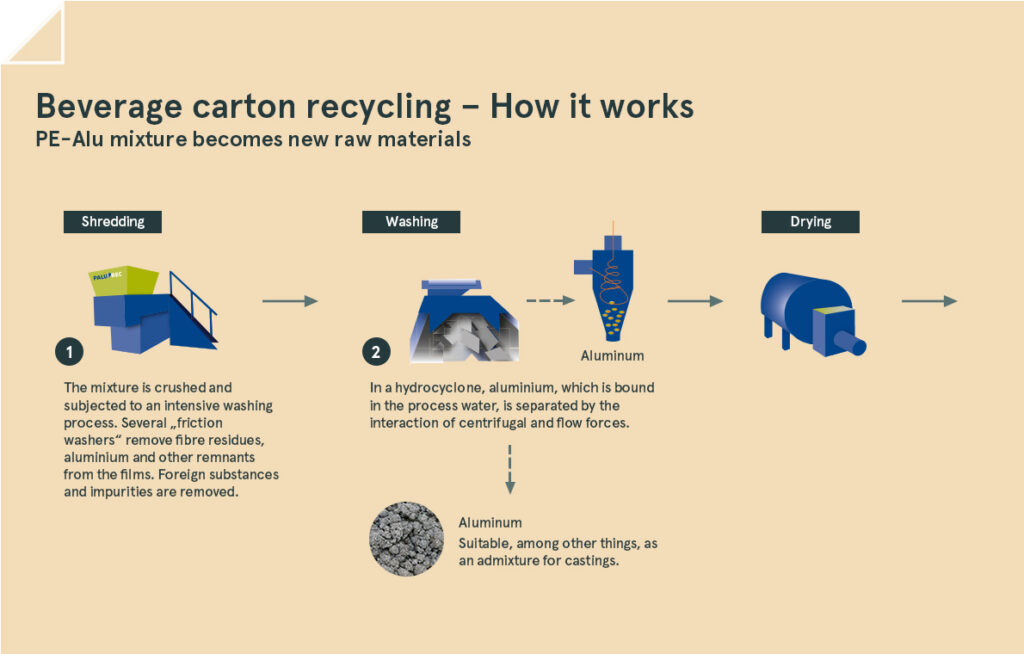Opening of Palurec recycling plant – A milestone in beverage carton recycling
Now we fetch the rest: PE-aluminium recycling of used beverage cartons
Detaching the paper fibres creates residual materials in the paper mill. These predominantly consist of a foil mixture of polyethylene (PE) and aluminium (AL) as well as high density polyethylene (HDPE) originating from the caps. The producers of beverage cartons are now taking the recycling of this so-called reject into their own hands. For this purpose, Palurec GmbH was founded as a wholly owned subsidiary of Fachverband Getränkekartons für flüssige Nahrungsmittel e.V. (FKN), which has invested in the construction of a recycling plant. It took just under three years to build the plant, with the companies Elopak GmbH, SIG Combibloc GmbH and Tetra Pak GmbH & Co.KG investing around eight million euros in the project – an investment that will pay off in so many ways. As Palurec produces commercially viable secondary raw materials from the residual materials of beverage carton recycling – the aluminium-plastic compound of barriers and closures – this conserves valuable resources and closes the recycling loop.
Video on the Palurec recycling plant
From groundbreaking to commissioning in 1.5 years
Beverage carton recycling – How it works:
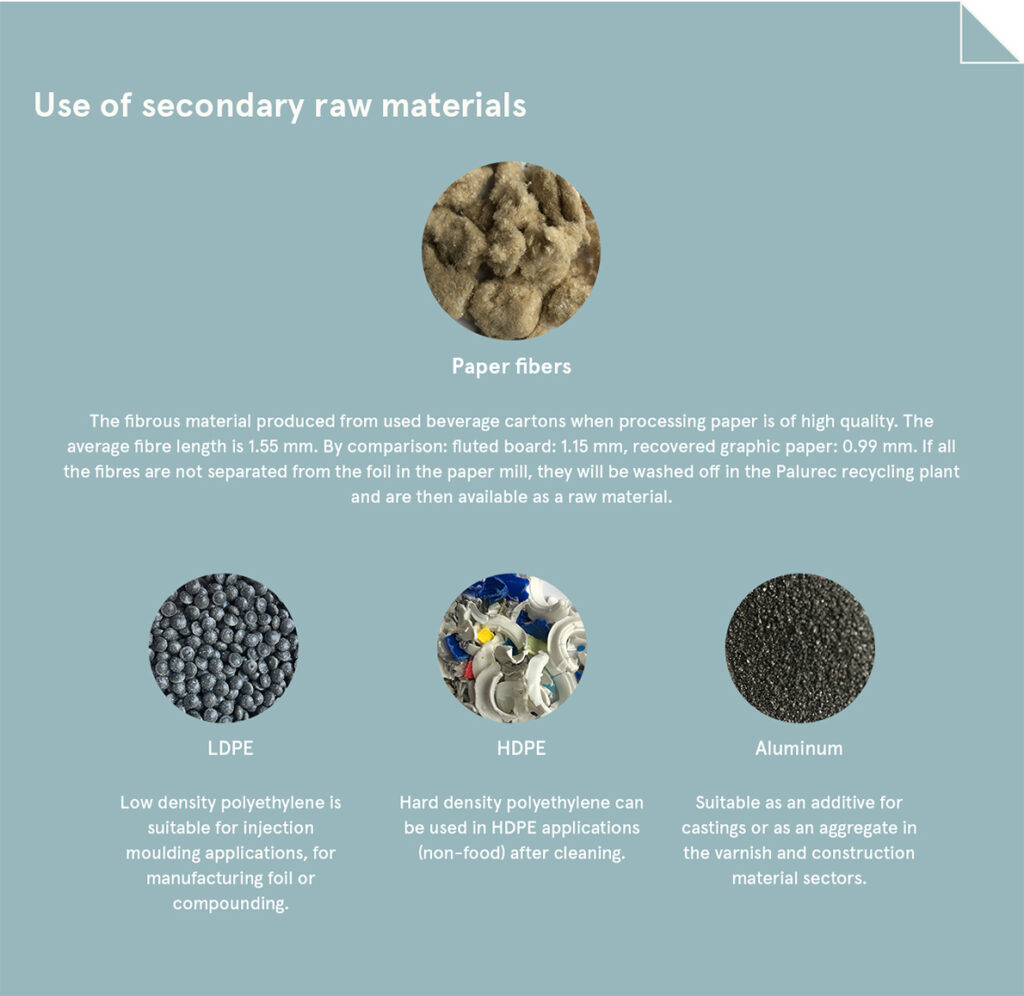
Palurec – Why?
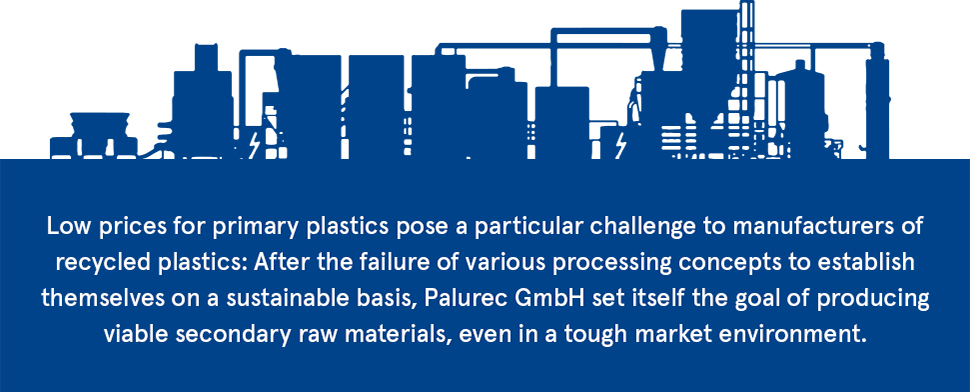
Palurec - Keyfact Overview
Who is the FKN?
So what’s next?
Whether there will be further Palurec plants depends on numerous factors. For example, lessons learned from the plant, how demand develops in the market for recycled materials, and to what extent companies in the recycling industry become engaged. In any case, inquiries from paper mills throughout Europe are currently revealing a great deal of interest in recycling solutions.
Don't miss out on any news and stay up to date with our newsletter. Subscribe here:
New on the shelf
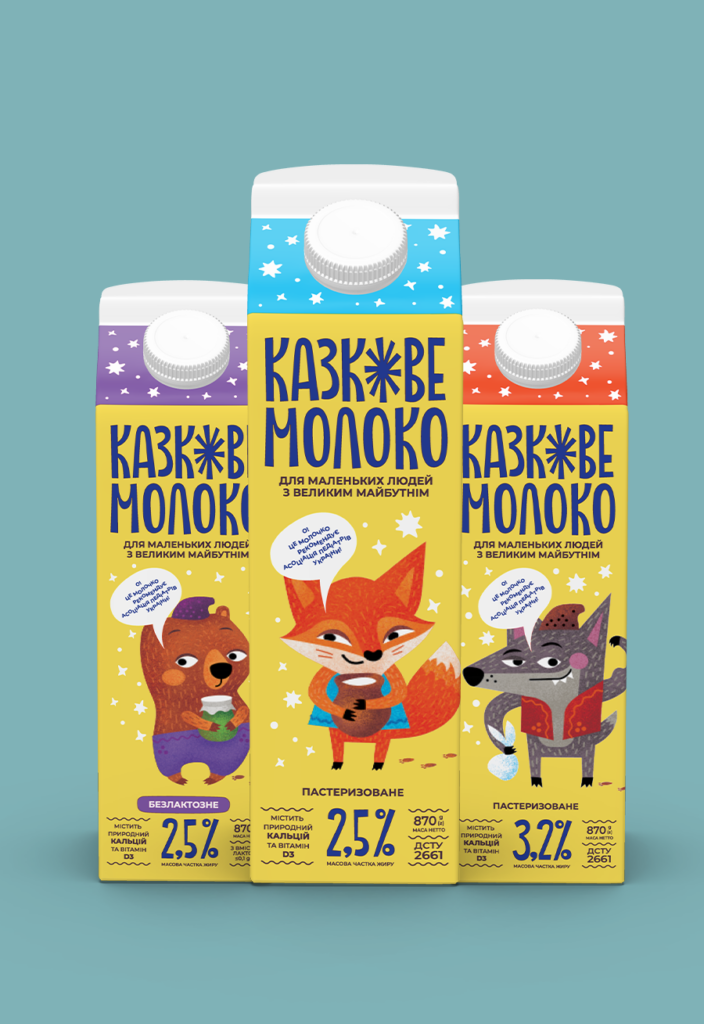
Molokia, Ukraine
Ukrainian manufacturer Ternopil Dairy has updated the designs of its fairytale milk for the Molokia brand with new characters. Wolf, bear, fox, hedgehog, stork and rabbit are now the stars of the packaging. There is also a lactose-free milk. The products are recommended by the Association of Paediatricians of Ukraine.
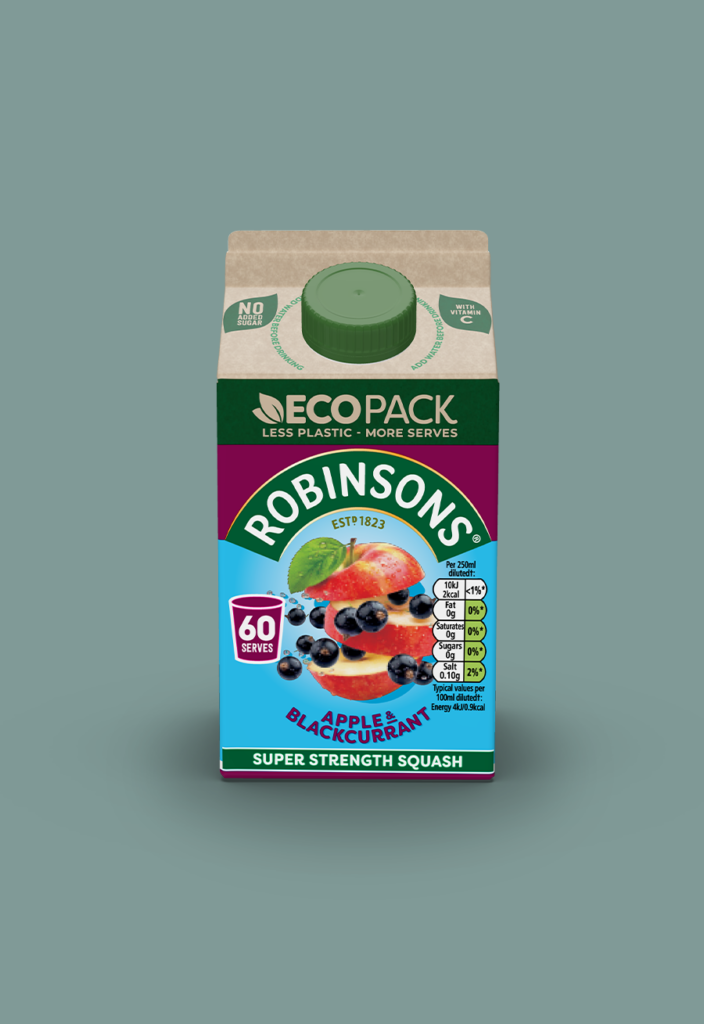
Robinsons, UK
“Less plastic – more serves” – Britvic launched super strength concentrated squash for the Robinsons brand using the 500ml Pure-Pak Classic carton. The result. 60 serves per 500ml and 85% less plastic per serve.
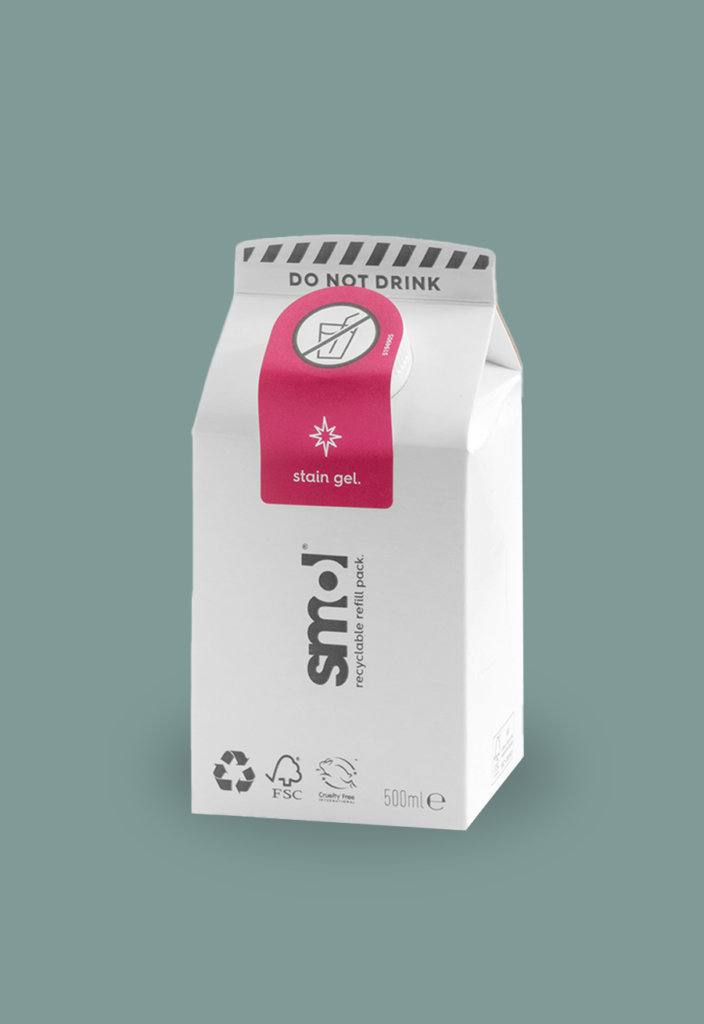
smol, UK
smol’s refill carton range continues to grow. Following dishwashing liquid and fabric softener, stain remover has now also been available in practical cartons since the start of 2024. The original bottle for applying and dispensing the liquids is made from 100% recycled plastic.
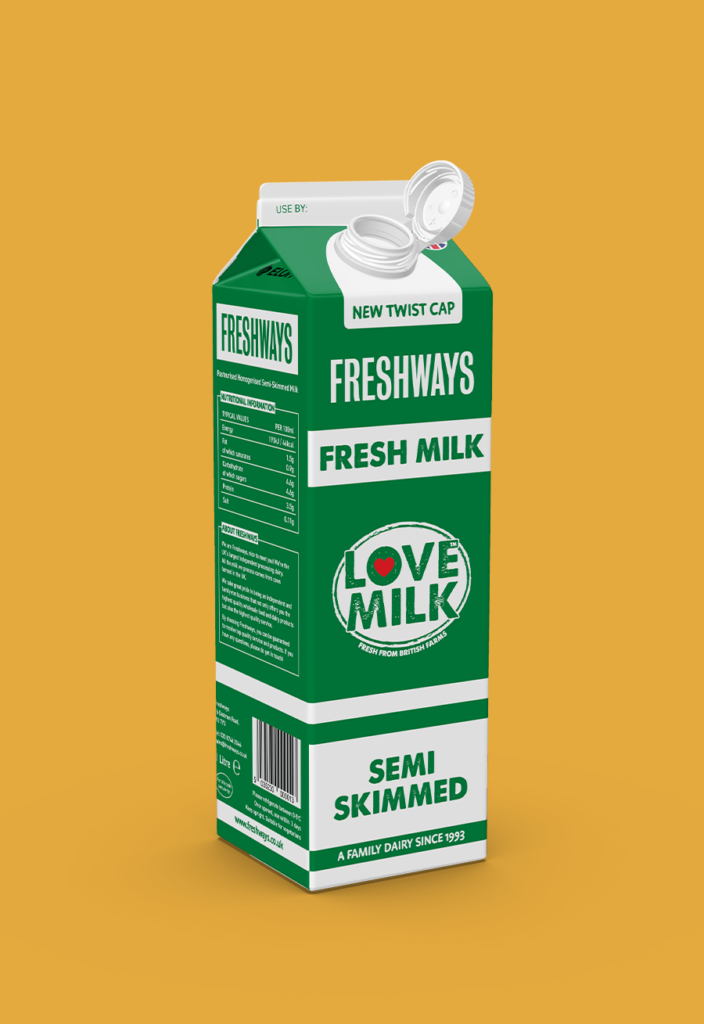
LoveMilk, UK
In response to growing consumer concern about plastic waste, the UK’s largest independent dairy launched cartons with tethered caps for its fresh milk products in the food service sector. This will significantly reduce the amount of plastic used in Freshway’s packaging.

